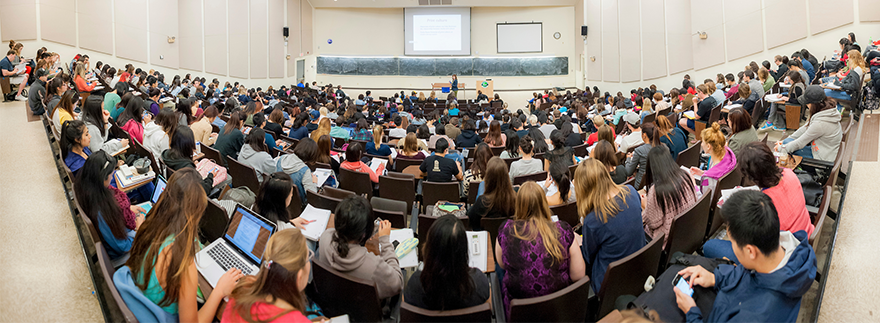How to Express Your Message if You Disagree

Find out how to express your message if you disagree with the content of a student-sponsored event or program.
Before, After, or During the Program
- Write guest editorials or send letters to campus newspapers, Associated Students/campus resources, political representatives, groups, individuals, administrators, or responsible parties.
- Lend support, reassurance, and empathy to others who may be hurt by offensive messages.
- Be sure to comply with all university policies and local, state, and federal regulations.
During the Program
Inside the Room or Event
- You may engage in peaceful, non-disruptive protest (for example, messages on shirts, turning your back to a speaker, putting tape over your mouth) if it does not create a disturbance or prevent the speaker from communicating to the audience, or otherwise prevent audience members from hearing and seeing the program.
- Audience members may choose to leave the event as long as they do not obstruct the presentation.
- If you disrupt or obstruct the presentation repeatedly or for a prolonged period of time, and fail to comply with the directions of university officials to cease disruption or leave the area, you will violate the university's code of conduct and/or the law. These are grounds for discipline or prosecution.
- For programs held where access to the event space can be controlled/secured, event sponsors may regulate what may be brought into an event space (such as video cameras or other recording devices) and activities that attendees may engage in; regulations such as these are permitted as they relate to time/place/manner (i.e., conduct) and not content.
Outside the Building, Room, or Event
- Peaceful protest or picketing with leaflets, petitions, singing, chanting, or signs is allowed as long as it occurs in a space that is open to the public and does not disturb the event or prevent attendees from entering or leaving the event.
- Do not block entrances or exits, impede pedestrian or vehicle traffic, or prevent others from entering, hearing, seeing, or leaving the program or speech.
- Do not use amplified sound unless allowed by applicable university sound policies.
- Do not disrupt university functions or activities (such as nearby classes) or other events or programs using reserved space.
In Response to a Program
Before, after, or during the program, you can respond to speech that you disagree with by sponsoring a separate presentation or program featuring alternative viewpoints, such as a:
- Teach-in
- Public forum
- Vigil
- Counter-demonstration
- Exhibit
If You Are Confronted with Offensive Speech or Materials
- Maintain a safe distance, and do not respond physically.
- Keep in mind that even though you find it offensive, it is very likely to be protected free speech.
- Consider organizing an appropriate, nonviolent response.
- Seek assistance from a university official if you feel you are being singled out or targeted or if you think that the conduct or speech violates university policy.
Questions? Contact Center for Student Involvement, (858) 534-0501.
